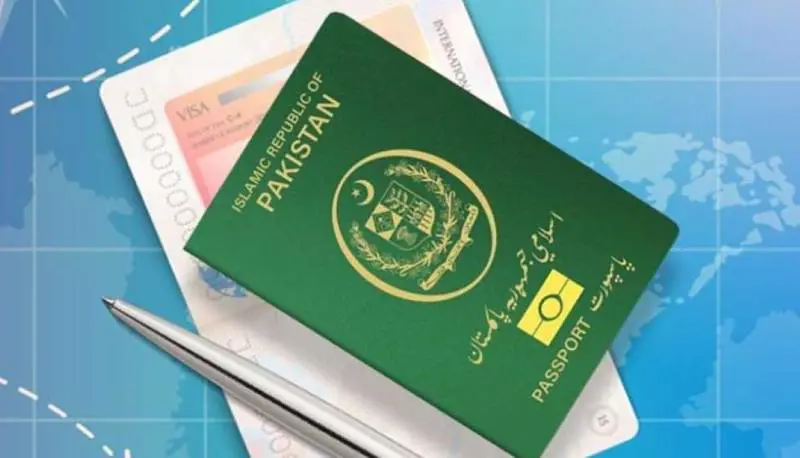
For Pakistani citizens planning international travel, a valid passport is an absolute necessity. Understanding the different categories of passports, their associated fees, and processing times is crucial for a smooth application process. As of July 2025, the Directorate General of Immigration & Passports (DGIP) in Pakistan offers both "Normal" and "Urgent" processing options for Machine Readable Passports (MRPs) and e-passports, with distinct fee structures and delivery timelines. This article will delve into the details of these categories, providing a comprehensive overview to help you make an informed decision for your passport needs.
The Significance of Passport Categories
The choice between a normal and an urgent passport largely depends on the applicant's travel urgency. While a normal passport offers a more economical option, it comes with a longer processing time. Conversely, an urgent passport significantly expedites the process at a higher cost. This tiered system allows the DGIP to cater to a diverse range of applicant needs, from those planning well in advance to individuals requiring immediate travel documents.
Understanding Machine Readable Passports (MRPs) and E-Passports
Pakistan has transitioned from traditional handwritten passports to Machine Readable Passports (MRPs) and is increasingly moving towards e-passports. MRPs are designed for enhanced security and faster immigration processing, as their data can be read electronically. E-passports, the latest iteration, incorporate a microchip embedded within the passport, further strengthening security features and enabling faster, more secure travel across borders that support e-passport verification.While the fees for both types have been updated, the core distinction between normal and urgent processing remains
Current Fee Structure for July 2025
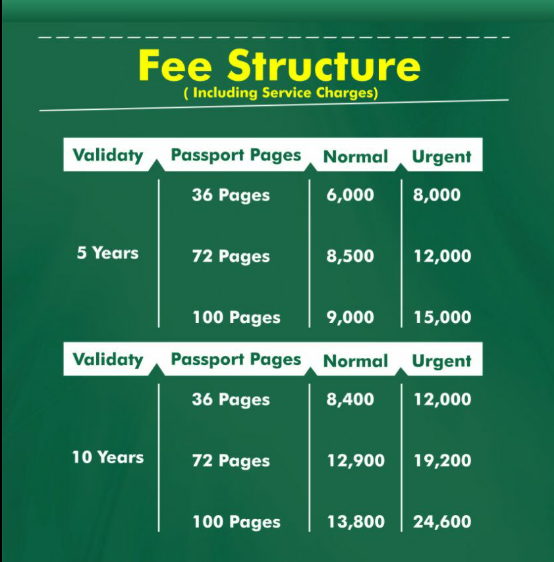
It's important to note that passport fees in Pakistan are subject to change by government notification. The figures provided below are based on the most recent available information for 2025, primarily from official sources and updated news reports. However, it is always advisable to verify the latest fees on the official DGIP website (www.dgip.gov.pk) or by contacting their helpline before initiating your application.
Passport fees are typically categorized by:
Validity Period: 5 years or 10 years.
Number of Pages: 36 pages, 72 pages, or 100 pages.
Processing Category: Normal, Urgent, or Fast Track (for MRPs, a fast track option might exist which is even quicker than urgent, but less common for general public).
Here's an estimated breakdown of fees for July 2025 for both MRPs and e-passports:
Machine Readable Passports (MRPs)
For a 5-Year Validity Passport:
36 Pages:
Normal: Approximately PKR 4,500
Urgent: Approximately PKR 7,500
Fast Track (if available): Approximately PKR 13,500
72 Pages:
Normal: Approximately PKR 8,200
Urgent: Approximately PKR 13,500
Fast Track (if available): Approximately PKR 19,500
100 Pages:
While specific figures for 100 pages with 5-year validity in the normal/urgent categories are less commonly published, they would typically be higher than the 72-page options.
For a 10-Year Validity Passport:
36 Pages:
Normal: Approximately PKR 6,700
Urgent: Approximately PKR 11,200
72 Pages:
Normal: Approximately PKR 12,200 (estimated, based on trends)
Urgent: Approximately PKR 20,500 (estimated, based on trends)
100 Pages:
Normal: Approximately PKR 15,000 (estimated)
Urgent: Approximately PKR 25,000 (estimated)
E-Passports
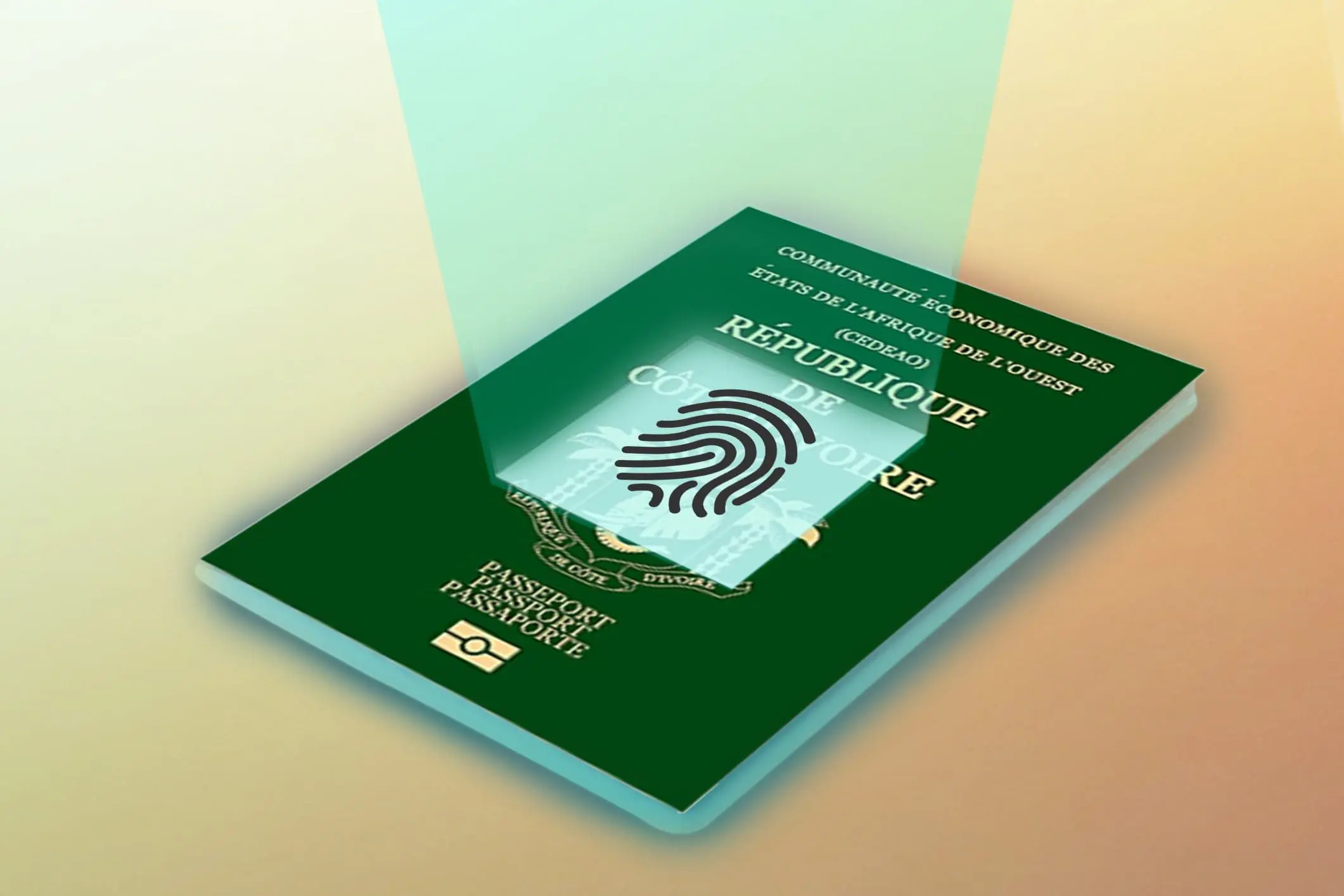
E-passports are generally priced higher than traditional MRPs due to the enhanced technology.3
For a 5-Year Validity E-Passport:
36 Pages:
Normal: Approximately PKR 3,000
Urgent: Approximately PKR 15,000
75 Pages (often listed instead of 72 for e-passports):
Normal: Approximately PKR 15,500
Urgent: Approximately PKR 27,000
For a 10-Year Validity E-Passport:
36 Pages:
Normal: Approximately PKR 13,500
Urgent: Approximately PKR 24,750
Important Considerations for Fees:
Lost Passports: Fees for lost passports are significantly higher, especially for second and subsequent losses.4 For example, a first-time loss for a 36-page normal MRP might be around PKR 9,000, with second and third losses incurring substantially higher charges (PKR 54,000 for a first loss, and up to PKR 356,000 for a third incident for e-passports).
Overseas Applications: Pakistani missions abroad (embassies and consulates) have different fee structures, typically denominated in the local currency (e.g., AUD, USD, AED), and may include additional surcharges. The fees cited above are primarily for applications within Pakistan.
Minor Applicants: For minors (under 15 years), only 5-year validity passports are typically issued.5
Processing Times: The Core Difference
The most significant distinction between normal and urgent passport categories lies in their processing times.
Normal Passport: For a normal passport application, the typical processing time is around 4 weeks (20-25 working days) from the date of application submission. This duration can fluctuate based on the workload at the passport office and any public holidays.
Urgent Passport: An urgent passport application significantly cuts down the waiting period to approximately 2 weeks (10-15 working days) from the application date. This expedited service is ideal for individuals with pressing travel plans.
Fast Track Passport (if applicable): While not always universally available or prominently advertised for the general public, some reports suggest a "fast track" option for MRPs that can reduce processing to as little as 5-7 working days. This category would naturally entail the highest fee.
It's crucial to understand that these are estimated processing times. Unforeseen circumstances, such as technical issues, backlogs, or verification delays (especially for first-time applicants or complex cases), can extend these periods. The DGIP usually provides a tracking number, allowing applicants to monitor the status of their passport online.
The Application Process: A General Overview
Regardless of whether you choose a normal or urgent passport, the fundamental application process in Pakistan generally follows these steps:
Gather Required Documents:
Original and Valid CNIC/NICOP/Smart Card: This is the primary identification document for adults (18 years and above). For married women, the CNIC/NICOP should reflect their husband's name.
Original Previous Passport: If renewing.
Computerized Child Registration Certificate (CRC/Form B): Mandatory for applicants under 18 years.
Parents' Valid CNICs/NICOPs and Passports: Required for minor applicants, and one parent must accompany the child.6
Proof of Residence: (e.g., utility bill, driver's license copy) – more relevant for overseas applications or specific cases.
No Objection Certificate (NOC): Required for government employees, issued within the last 90 days by their respective ministry/division/department.
Foreign Passport (for Dual Nationals): Dual nationals must present their foreign passport along with their Pakistani identification documents.
Court Orders: In cases of separated or divorced parents, court orders confirming custody of the child are required.7
Recent Photographs: Passport-sized photographs adhering to DGIP specifications.8
Visit a Passport Office: Applicants need to visit a designated passport office (Passport and Immigration Office) in person for biometric data collection (fingerprints) and photograph capture.
Token Issuance: Upon arrival, obtain a token for your turn.
Fee Payment: Pay the applicable fee at the designated counter, usually a bank branch within the passport office premises.
Data Entry and Biometrics: Proceed to the data entry counter where your information will be entered and your fingerprints and photo will be taken.
Interview (if required): Some applicants, particularly first-time applicants or those with complex cases, may undergo a brief interview.
Receipt Collection: Collect the receipt with your tracking number, which can be used to check the status of your passport online.
Passport Collection/Delivery: Once processed, the passport can be collected from the designated office or delivered via courier if that option was chosen during the application.
Choosing Between Normal and Urgent
The decision between a normal and urgent passport boils down to your personal circumstances and travel timeline:
Opt for Normal if:
You have ample time before your planned travel (at least 1-2 months).
You want to save on the passport fee.
Your travel plans are flexible and not time-sensitive.
Opt for Urgent if:
You have immediate travel plans (within a few weeks).
You need the passport for a visa application with a tight deadline.
You are willing to pay the additional cost for expedited service.
Important Notes and Recommendations
Verify Information: Always double-check the latest fee structure and required documents on the official Directorate General of Immigration & Passports (DGIP) website (www.dgip.gov.pk) or by calling their official helpline. Information can change.
NADRA Requirements: Ensure your CNIC, NICOP, or CRC is valid and up-to-date. The passport system relies heavily on NADRA data, and any discrepancies or expired documents will delay your application.
Accuracy is Key: Provide accurate information and ensure all documents are complete and correct to avoid processing delays.
Early Application: Even if you opt for the urgent category, applying as early as possible is always recommended to account for any unforeseen delays.
Lost Passport Procedures: If your passport is lost, report it to the police immediately and obtain a police report, as this is a mandatory document for applying for a replacement passport. Be aware of the significantly higher fees for lost passports.
Online Application (for renewals/modifications): While first-time applications generally require a physical visit, some renewals and modifications for Machine Readable Passports can be initiated online through the DGIP's online portal, which can save time at the passport office. However, biometric capture may still be required.
Conclusion
As of July 2025, obtaining a passport in Pakistan offers flexibility through its normal and urgent processing categories. While the normal option provides a cost-effective solution with a standard processing time of approximately four weeks, the urgent category caters to immediate travel needs by significantly reducing the waiting period to about two weeks, albeit at a higher cost. E-passports, with their advanced security features, are also available with similar tiered processing options and distinct fee structures.10 By understanding these differences, gathering the necessary documents, and adhering to the application procedures, Pakistani citizens can efficiently secure their travel documents, ensuring a smoother journey for their international endeavors. Always prioritize checking the most current information from official DGIP sources to ensure a hassle-free experience.
;
More Travel News
-
 19-Jan-2026Best Time to Book Umrah from Pakistan – Save Money in 2026
19-Jan-2026Best Time to Book Umrah from Pakistan – Save Money in 2026 -
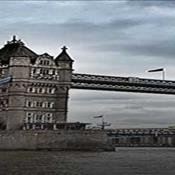 23-Aug-2019Top 5 London Hotels Perfect for the Pakistani Traveler
23-Aug-2019Top 5 London Hotels Perfect for the Pakistani Traveler -
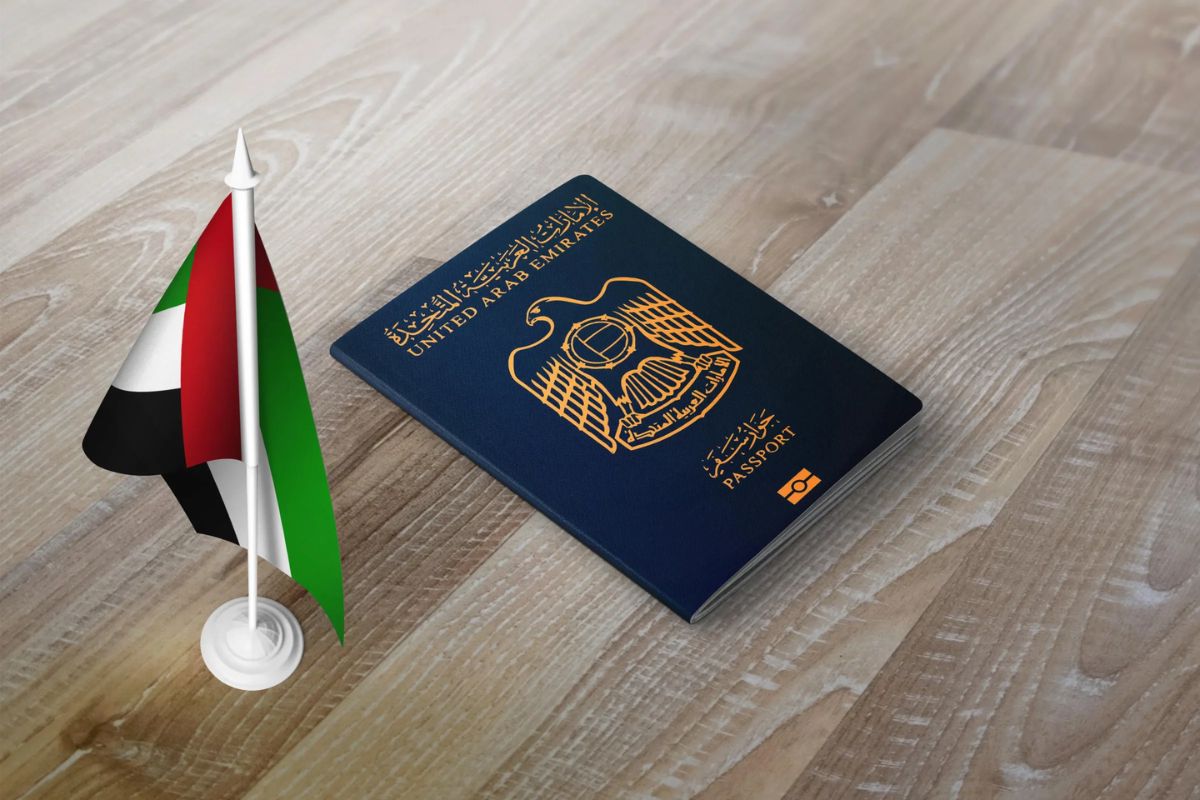 06-Aug-2025The UAE's 5-Year Multiple Entry Visa
06-Aug-2025The UAE's 5-Year Multiple Entry Visa -
 06-Dec-2019Best Places To Visit In Northern Areas of Pakistan During Snowfalling
06-Dec-2019Best Places To Visit In Northern Areas of Pakistan During Snowfalling -
 02-Nov-2025How to Claim Your Schengen Travel Insurance in Pakistan
02-Nov-2025How to Claim Your Schengen Travel Insurance in Pakistan -
 27-Jun-2019Top 10 Peaks in Pakistan
27-Jun-2019Top 10 Peaks in Pakistan -
 07-Apr-2023UAE Extends Visa on Arrival Facility for 70 Nations
07-Apr-2023UAE Extends Visa on Arrival Facility for 70 Nations -
 30-Apr-2025All Airlines Including PIA Flights to Skardu and Gilgit Cancelled Due to Sensitive Border Watch Along LOC
30-Apr-2025All Airlines Including PIA Flights to Skardu and Gilgit Cancelled Due to Sensitive Border Watch Along LOC -
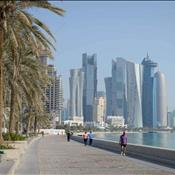 10-Mar-2020Qatar Bans 14 Countries Including Pakistan and India
10-Mar-2020Qatar Bans 14 Countries Including Pakistan and India -
 19-Aug-2025Saudia’s Dream Sale: Up to 50% Off Sep–Dec Flights — Big Win for Pakistan’s Umrah Travellers
19-Aug-2025Saudia’s Dream Sale: Up to 50% Off Sep–Dec Flights — Big Win for Pakistan’s Umrah Travellers -
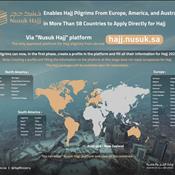 10-Feb-2023Hajj Registrations for 58 Countries
10-Feb-2023Hajj Registrations for 58 Countries -
 04-Sep-2019How to Choose the Best Travel Insurance
04-Sep-2019How to Choose the Best Travel Insurance
